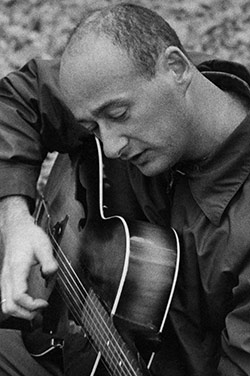
He actually tried living elsewhere—there was, you’ll recall, that stint in Congress. But the weeks couldn’t end quickly enough. Come Thursday night, he would hop on the shuttle and return blissfully home to his rent-controlled one-bedroom in the Village.
He wasn’t the first to suffer from this strange environmental disease—the disease that makes it almost impossible to survive anywhere else—but he was among the last. (We still have Fran Lebowitz.) In other cities, they are outsiders, misfits. Here, in New York, they are the essence of the place.
He represented a certain kind of ethnic Jew—observant yet assimilated—another endangered species. He was born in the Bronx, but like so many first-generation Jewish immigrants, his parents had started their American journey in a scabby, peeling tenement on the Lower East Side. They were knocked around by the larger forces of their time—furriers weren’t much in demand during the Depression—but their middle child, Edward Irving, never lost sight of where he wanted to be.
It was the late fifties: What young progressive wouldn’t have fallen in love with the narrow streets of Greenwich Village, lined as they were with coffeehouses teeming with corduroyed bohemians strumming guitars and reciting poetry? In one of his first political acts, he created the Right to Sing Committee to counter a local campaign to eject the folksingers from Washington Square Park.
He rode his considerable ambition through the city’s political ranks before running for Mayor Lindsay’s old congressional seat in Manhattan’s so-called Silk Stocking district. But his victory took him too far from home.
We think of Koch now as New York’s quintessential mayor. In truth, he had none of the glamour typically associated with the job. He was no Gentleman Jimmy, no Little Flower, no John Lindsay. He was funny-looking—not fat but flabby, with narrow shoulders and wide hips.
But then the city he aspired to run was every bit as unglamorous as he was in 1977. We can all picture the time, even if we can’t quite remember it—the subway cars bruised with graffiti, the decaying piers, the buildings on fire. New York as the broke, broken, irredeemable city that the federal government didn’t think was worth saving, a place that was just a power outage away from total criminal mayhem.
New York didn’t know what it was, or what would become of it. The working-class city had given way to the postindustrial city, but today’s New York—our glittering, gleaming New York—had not yet been conjured. In Koch, a high-pitched, hotheaded, in-your-face Jew from Queens, New York found its transitional figure, the lumpen leader who helped transform the city to the one we see today.
It’s easy enough to tick off the political factors behind Koch’s improbable election. But really, his success was based on something much simpler. New Yorkers could see that Koch loved his city—their city—even in its degraded state. He was so raw, so unpolished, so glaringly imperfect, he had to be the one.
And how about Koch? I can’t help but wonder if he felt a special kinship with the city at this moment—if he, too, felt isolated, a result of a buried identity.
Like countless other second-generation immigrants of his era, Koch aspired to make it in New York. It must have been a remarkable thing to wake up and discover that he was actually running the place.
Koch had no glamour when he was elected, and he managed not to acquire any during three terms in office. He was that rare politician who somehow became more ordinary, more real, even as he grew larger-than-life. He was obnoxious but not pretentious, deeply loved and deeply loathed, all of which only confirmed his essential New York–ness. We know that he achieved international fame, that he met statesmen and women all over the world, but who can imagine Ed Koch anywhere but in New York?
He died, as he had lived, alone, like so many aging, single New Yorkers. He had picked out his burial plot years earlier. Most New York Jews of his era are laid to rest in one of the many Jewish cemeteries that dot the eastern reaches of Queens, Long Island. For Koch, this would not do. His gravestone identifies him as a proud Jew, but it can be found in Trinity Church Cemetery. Not the Village, but as close as he could get.
See More
• The Perfect Mayor of Crazytown
• Mario Cuomo on His Old Foe
• Hizzoner’s Many Roles and Magazine Clippings
• The Legacy of the Koch Building Boom
• Maer Roshan on His Dinners With Koch
• New York’s Last Mayor From Main Street
• Koch and the AIDS Crisis: His Greatest Failure
• A Life in Pictures
• Complete Coverage on Daily Intelligencer
Have good intel? Send tips to intel@nymag.com.